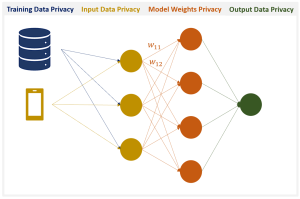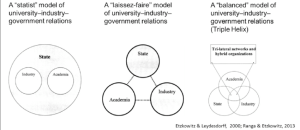Introduction
The incorporation of AI into social networking sites has profoundly changed how users perceive and engage, providing tailored content suggestions and precise advertising. However, these advancements have additionally sparked worries regarding AI privacy concerns. Users are increasingly worried about the extensive data collection and processing activities that AI algorithms conduct to optimize their social media interactions. The tech industry must prioritize addressing these privacy concerns to ensure user trust remains intact and ethical and legal standards are met. Our focus is on examining viable answers to tackle AI privacy issues on social media platforms.
Ensuring User Control Over Data
A fundamental step in addressing AI privacy concerns Enabling users to have authority over how their data is used is a significant factor. Transparent data collection and usage policies should be implemented by social media platforms. A transparent communication regarding the collected data and its utilization by AI algorithms for personalized experiences should be provided to users. Moreover, platforms ought to enable users with straightforward privacy configurations. According to user preferences, these settings should provide the option for individuals to either consent or decline specific data collection practices.

Adopting Privacy-Preserving AI Techniques
Techniques for AI that protect user privacy deliver favorable approaches for securing user data while maintaining the effectiveness of AI algorithms. Two techniques that exist are federated learning and differential privacy. Federated learning involves training AI models on local devices instead of a centralized server, The result is that sensitive user data is never transferred from the device. By distributing data, the likelihood of data breaches is significantly minimized while privacy protection is strengthened. Statistical noise is introduced into data sets by differential privacy. The task of accurately identifying individual users poses a challenge in maintaining precise AI predictions and recommendations.

Implementing Data Minimization Practices
Social media platforms should embrace data minimization practices, Gathering and keeping only the necessary data for specific objectives is essential. Through the reduction of data breach risks while also instilling trust in users who prioritize their privacy Platforms can guarantee that AI algorithms do not cross ethical boundaries and misuse user information by restricting the quantity of data gathered and stored.

Considering investments in AI algorithms that rely less on personal data
To mitigate privacy worries, technology companies ought to allocate resources towards the exploration and advancement of AI algorithms that depend less on personal data. Exploring alternative methods for content recommendation and ad targeting is something platforms can consider that give more importance to the content itself rather than extensively profiling users. By adopting this approach, the requirement for invasive data collection methods can be reduced while still delivering personalized experiences.

Facilitating Partnership Among Industry, Government, and Academia
Addressing AI privacy issues necessitates collaboration among various stakeholders. Close collaboration between policymakers and tech companies is crucial that focus on creating frameworks and standards that both prioritize user privacy and foster AI innovation The current privacy regulations, like the GDPR in the European Union, might require revisions to address the distinctive issues presented by AI technologies. Implementing these changes would guarantee the sufficient protection of individuals’ personal information considering the advancements in artificial intelligence technology. Moreover, academic experts can offer significant ideas and expertise in the creation of AI techniques that prioritize privacy and best practices.

Conclusion
The complexity of AI privacy issues on social media platforms requires a comprehensive approach that empowers users, The adoption of privacy-preserving AI techniques and practicing data minimization are essential, invests in less invasive AI algorithms, Collaboration among industry, government, and academia should be fostered Addressing the challenges and safeguarding individuals’ privacy in the digital age requires this approach. By carrying out these solutions, social media platforms can maintain their utilization of AI’s benefits while ensuring user privacy and preserving ethical principles.




